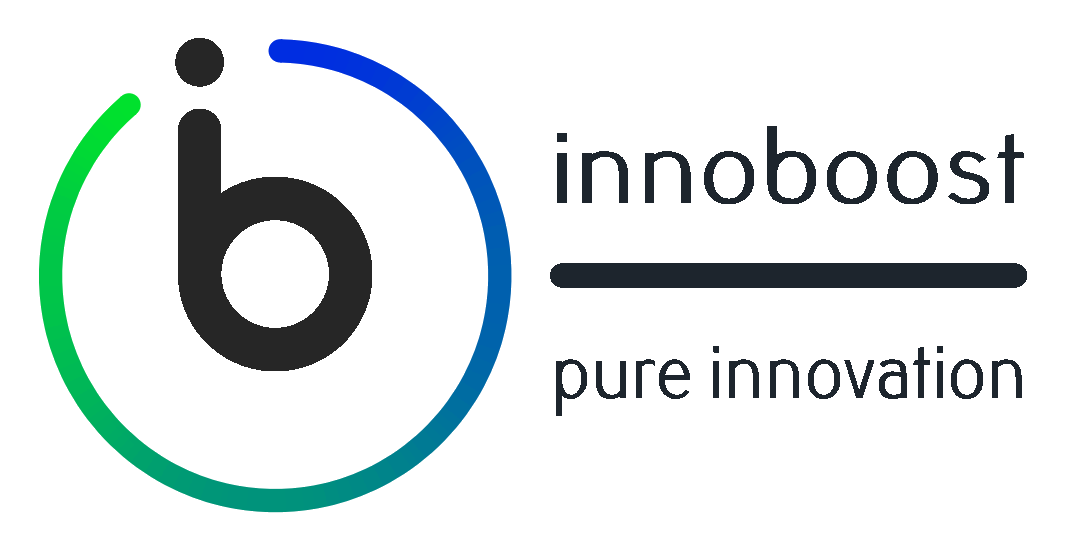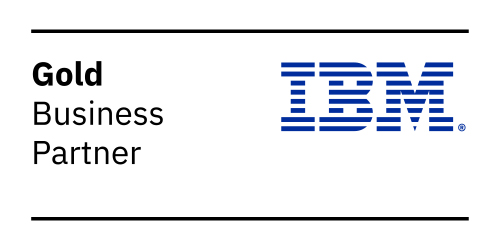Blockchain for Businesses: The Definitive Guide
9 min read
Summary:
Blockchain technology can improve virtually every aspect of a modern company. From increased security, transparency, and data traceability, to improved brand trust, cost savings, and production and product delivery, the potential of blockchain is virtually limitless. In this blog, we want to talk about all the ways having a shared and immutable ledger can help businesses gain competitive edge on the global market, and present some of our most potent tools that can help companies implement blockchain technology into their everyday operations.
Benefits of Blockchain Technology
“What is blockchain, and how can it improve my business?” is the burning question companies worldwide are seeking the answer to. But as a reminder, blockchain can be described as a decentralized, shared, and immutable digital ledger that facilitates the process of recording transactions across a large number of devices and tracking digital assets in a digital network. Its records cannot be altered or tampered with without changing all the subsequent blocks and the pre-established consensus of that particular network. Here’s how blockchain works: when a new piece of data is registered into the network, it gets added to a new block. When the transaction is completed, that information is permanently stored in the block and chained to the previous block. And this process goes on in chronological order, indefinitely.
Until the past several years, blockchain has been predominantly used as a form of security for cryptocurrencies due to its robust ability to secure and decentralize transaction records. And it works well for crypto because the transactional data saved on the blockchain is irreversible and acts as a permanent record of all transactions in that currency’s past. But along with the rise of cryptocurrencies, the amazing features of blockchain have made it possible for this amazing technology to find its application in other fields. Here are just some of its features that made that possible:
Decentralization
One of the many benefits of blockchain is that it can be a decentralized network, meaning there’s no authority figure or third party governing it.
Superior Security
Blockchain uses advanced cryptographic algorithms to secure and protect stored information against breaches, cybercrime, and data tampering.
Distributed ledger
Distributed ledger technology is a core component of blockchain as it allows for simultaneous user access, transaction validation, and record updates across the network that’s shared among various blockchain nodes.
Immutable data storing
Information stored on the blockchain is incorruptible and unchangeable. Once a block is part of the chain, it cannot be changed without the permission of the pre-defined majority of nodes on the blockchain.
Blockchain in Business
Considering all these properties, it’s easy to see how modern corporations can find blockchain technology attractive. In a world where information can mean the difference between hundreds of millions of dollars in loss or profit, it’s easy to imagine why more and more corporations are opting for blockchain. Here are some areas where corporations find blockchain superior compared to other information-storing technologies:
Supply Chain Management
Globalization, like it or not, has made the world hyperconnected. The device you’re reading this on has parts that’ve been made in several countries across the globe. The whole world subtly depends on properly optimized supply chains that ensure the products are available and arrive on time. Blockchain’s immutable record-storing technology makes sure that supply chains run seamlessly and without error by making the whole process transparent and efficient.
Improved flexibility
Blockchain helps your business become resistant to supply chain disruptions and protects you from their impact. Once implemented, a blockchain system allows your operation to respond to issues and quickly adapt to market changes without adding to your operational cost. This is achieved by blockchain’s imperative for real-time, secured distribution of information among the participating parties (also called nodes), which infers trust between participants, and with blockchain’s ability to track product trends, helping companies make rapid adjustments.
Smart Contracts
Blockchain has this incredible ability to simplify how businesses manage contracts. In their essence, smart contracts are simple programs that run in the blockchain once the pre-established conditions are met. One of their purpose is to create self-fulfilling contract form that’s completed only when both participating parties confirm that their predetermined agreement is fulfilled. But the role of smart contracts are not limited to regulate the relationship between participants on the blockchain network. They can also be used to create new assets or transactions, edit their properties, deletion, and so on.
Blockchain At Work
In cooperation with the network of our partners, we have developed several tools and platforms that help businesses implement and manage blockchain technology, build trusted and reliable connections with each other, and improve product tracking across the supply chain. So here are several blockchain solutions that benefit your business.
IBM’s Hyperledger Fabric
One of the most extraordinary ideas that changed the business world is the network of networks, where separate corporate entities could trust each other enough to communicate vital data while retaining a certain degree of privacy for their internal affairs. For example, a single purchaser might work with several different sellers who sell the same product. The relationship between all members of this network requires that certain aspects of the involved transactions remain private between a single seller and the purchasers.
This is made possible by IBM’s Hyperledger Fabric, which allows for total isolation from other network participants and the ability to share hashes as evidence of transactions upon request. Instead of an open network without a permission system, Hyperledger Fabric offers a scalable and secure platform that supports private transactions and confidential contracts.
To simplify and define Hyperledger Fabric, it’s a modular blockchain network that has set the standards for corporate blockchain platforms. It’s a foundation for developing enterprise-grade applications and industry solutions that use open, modular architecture with plug-and-play components to accommodate a wide range of use cases. Here are some of the benefits that set Hyperledger apart from other similar platforms:
Permissioned network
Hyperledger Fabric is developed to establish decentralized trust in a network of known members and to break away from open networks that gather anonymous participants.
Secured Transactions
Hyperledger Fabric allows you to share only the data you want to share and only with parties you want to share with.
Pluggable Architecture
Hyperledger allows you to modify the blockchain according to your industry’s needs with modular and pluggable solutions rather than a one-size-fits-all approach.
Improved performance
Built to support enterprise-grade use cases, Hyperledger Fabric can quickly process transaction throughput from its consensus mechanism. Since Hyperledger Fabric falls under the category of permissioned blockchain framework, it is not susceptible the Byzantine Failure, which slows down performance when validating transactions on the network.
Supply Chain Intelligence Suite: Food Trust
Food Trust is a modular solution built on top of IBM Blockchain to specifically meet the needs of the food industry. It’s a collaborative network of farmers, food processors, wholesalers, distributors, manufacturers, retailers, and other links in the food supply chain. This cutting-edge solution allows participants to connect via a permissioned, immutable, and shared record of food provenance, transaction data, and processing details. It benefits all blockchain network participants with a safer, more intelligent, and more sustainable food ecosystem.
It might sound like a lot of buzzwords in one paragraph, so allow us to simplify. Suppose we imagine the whole food industry as an interconnected web that encompasses everyone, from the farmer who grows the food to the final seller who sells his food to the end consumer. In that case, Food Trust helps all members in this chain to run an efficient network by eliminating constraints, delays, and bottlenecks in this supply chain. Here are just some of the benefits of implementing Food Trust:
Enhances Customer Trust in Brand
Food Trust helps companies build their reputation for safety and quality with a robust traceability system. As customers grow increasingly aware of the importance of safe, sustainable, and environment-friendly ways of food production and delivery, Food Trust provides essential information about food’s origin, the way it was grown, and how.
Food Safety & Compliance Confidence
Food Trust allows companies to follow all safety and regulatory compliances. This helps them avoid product recalls and potentially save millions of dollars. Here are several different scenarios when Food Trust can save millions of dollars:
- In case of a food incident, companies can quickly identify the cause and save days and weeks of scouring over digital and physical documentation across the vast network of suppliers and distributors.
- Lack of transparency and gaps in supply chain monitoring can expose the whole system to catastrophic vulnerabilities. To avoid that, companies deploy blockchain for end-to-end traceability and monitoring of food products in the supply chain.
- As regulators demand state-of-the-art practices and the application of modern technologies to ensure premium food safety, traditional food traceability practices aren’t viable anymore. Blockchain technology helps organizations elevate their food standards above minimum requirements.
Fraud Prevention
With end-to-end monitoring systems, Food Trust provides superb traceability records that help supply chains become more resistant to food fraud, errors, and tampering. By sticking to the traditional ways, today’s complex and fragmented supply chains are doomed to create blind spots in their networks. Weak links can appear anywhere: from the raw materials and ingredients to the packaging and the finished products. Blockchain can enable $31 billion in food fraud saving globally by implementing food tracking systems across their supply chain.
Improved safety monitoring
Food Trust allows you to trace and monitor food shipments in every supply chain step and to determine the remaining shelf life with precision. Also, smart contracts application prevents cases when a company, for example, rejects a whole food container due to prolonged exposure to warmth. In essence, Food Trust makes food safer, helps it reach the consumer’s table faster, and increases your profit margin.
Reduces food waste
One of the biggest challenges of the food industry is reducing food waste on all production levels, from its growth to its consumption. Almost a third of all food produced in the world ends up as waste. The savings the implementation of blockchain technology could bring are projected to go up to $120 billion annually. The food waste mountain could be toppled with ease by having end-to-end traceability, smart contracts that monitor the transportation conditions, collaboration with trusted partners, and full transparency of the supply process
Every industry can benefit from blockchain
The food industry is just one example of the drastic improvements blockchain can bring. Nearly every industry that relies on robust data-storing and data-transferring systems can benefit from this incredible technology. And we’ve developed the right tools to help you transition into the modern era. Contact InnoBoost and see for yourself how blockchain can contribute to the success of your company.
1“https://www.sciencedirect.com/science/article/abs/pii/S2214212620301484
2https://www.frontiersin.org/articles/10.3389/fpsyg.2022.1004007/full
4 https://www.ibm.com/downloads/cas/0XMOQJNP
5https://www.ibm.com/topics/hyperledger
6https://www.ibm.com/topics/hyperledger
7https://www.ibm.com/downloads/cas/ZN9EWKRQ
8https://www.ibm.com/downloads/cas/YDKZAB6O
You may also like…
Empower Your Workforce with Personalized AI Assistants
5 min readSummary In today’s rapidly evolving digital landscape, organizations are under constant pressure to optimize their workflows, improve efficiency, and reduce operational costs. As traditional automation tools struggle to keep pace, the next generation of...
Strengthening Your Enterprise Security with IBM QRadar: The Next Step in Threat Protection
5 min readSummary In a world where cyberattacks are becoming more frequent and complex, businesses need robust solutions to stay ahead of emerging threats. That’s where IBM QRadar comes in. Whether you’re managing a large enterprise or scaling your IT infrastructure,...
InnoBoost’s Blueprint for Seamless AI Integration
4 min readSummary Implementing artificial intelligence (AI) has quickly become a central focus for almost every company. They, too, want the piece of the cake, to integrate it, to reap its sweet rewards through enhanced productivity, reduced costs, and greater profit....
Headquarters
InnoBoost SA
Route de Genolier 18
1271 Givrins
Office
InnoBoost SA
EPFL Innovation Park
Building E, Module 007
1015 Lausanne
© 2021, InnoBoost SA. All rights reserved – Usage conditions – Graphic design by Emblematik Sàrl





